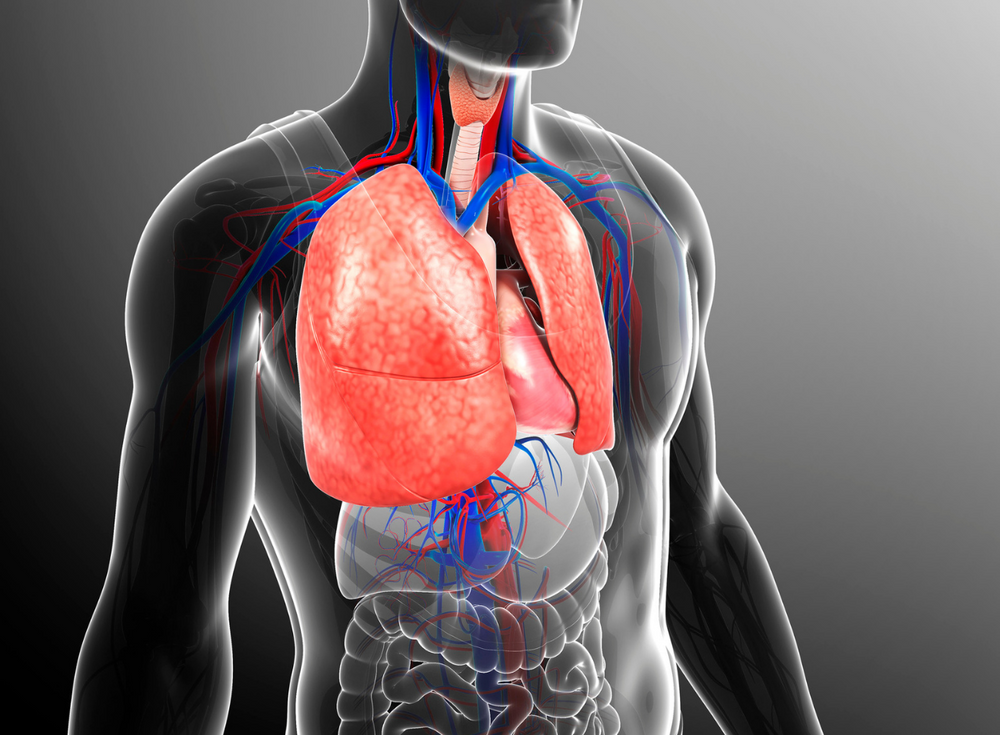
Cough
5 Kinds of Cough: Vata, Pitta, Kapha, induced by lung injury, those caused by wasting or pulmonary tuberculosis.
What Causes It?
When the Vata's downward flow is stopped, it ascends to the chest, neck, and finally the head. This affects the eyes, the back, the chest, the ribs, and eventually comes out of the mouth as a cough.
- Vata Cough: Dry cough with violent bouts, severe pain, and a lot of noise. Coughing out a dry spit may help to minimize coughing fits.
- Pitta Cough: Yellow tint in the eyes, mucus, bitter taste in the mouth, fever, dizziness, bile and blood vomiting, thirst, hoarseness, fumes emanating from the mouth, acidity, and persistent coughing.
- Kapha Cough: Mild pain in the chest, head, and heart. Thick, sticky, white or transparent mucus emission, heaviness, throat coating, debility, runny nose, vomiting, loss of appetite and taste.
- Lung Injury Cough: Occurs as a result of trauma from intense activity. Large volumes of yellow or black blood mixed with mucous are symptoms. It is dry, nodular, and stinks.
- Wasting Cough: Caused by doshas, specifically Vata. Mucus is putrefied, pus-like, and can be green or red.
Remedies for Cough
- Vata: When the person is undernourished, Vata may be reduced by a drink made of ghee, oil enemas, sugar cane water and milk.
- Chest Wound and Wasting Cough: Boiled milk with shatavari, bala, and licorice or a mixture of ghee with boiled milk, shatavari, cane sugar, pippali, vamsha lochana, black pepper, turmeric, karkata shringi, and chabchini may help.
- Kapha: It is suggested to take an Ayurvedic decoction of barley and pungent herbs like pippali under supervision of an expert. Following this, raw honey, sour drinks, hot water, or lassi may be be beneficial.
- Pitta Cough: It is advised to use herbs such as vasak, turmeric, vamsha lochana, cardamom, and honey.
Difficult Breathing
What Causes It?
When Vata's movement is hindered by Kapha, it spreads in all directions and contaminates the channels of respiration, water, and food. This barrier rises from the stomach into the chest, making breathing difficult and can occur in cases like:
- Increase of cough
- Dosha aggravation
- Diarrhea due to indigestion
- Vomiting
- Anemia
- Fever
- Allergies
- Smoke
- Injury to vital organs
- Drinking very cold or ice water
Remedies for Difficult Breathing
- Bronchodilators (medicines that relax lung muscles and widen airways) like lobelia and ephedra may be be used to open breathing.
- Tridoshic herbs like haritaki, bala and saffron are suggested along with dosha specific diet.
- Tonics like chyavan prash, bala, ashwagandha, and brahmi may help strengthen breathing.
Hiccup
There are five types of hiccups, and their causes and progression are similar to disorders of difficult breathing.
- Food-caused (annaja hikka): Vata is aggravated by eating too quickly or consuming dry, penetrating food and unaccustomed foods. These are painless hiccups, followed by sneezing. It stops when foods and drinks suitable to the person are ingested.
- Exertion-caused (kshudra hikka): Vata becomes mildly increased from exertion. This causes a slight hiccup from the base of the shoulders. It ceases after eating food.
- Indigestion-caused (yamala kihha): It happens when a person hasn't eaten in a long time or when their digestion isn't working properly. The hiccups occur in pairs, generating head and neck shakes.
- Mahati Hikka: Deep hiccups arising forcefully from inside the body with great sounds.
- Gambhira Hikka: These hiccups usually develop in colon and navel region with yawning, body expansion and vibrating sounds.
Remedies for Hiccups
- It is advised to administer an oil massage with black salt. Oil loosens and dissolves the phlegm blocking the breathing channels and re-balances Vata.
- Taking a light diet of basmati rice and ghee may be helpful. It is recommended to consume a decoction of pippali, rock salt and honey under supervision of an Ayurveda expert. This said to clear excess Kapha and enable proper flow of Vata.
- Ghee mixed with triphla powder or castor oil are believed to quickly stop the hiccups.
- Drinking water slowly and nonstop for 30 seconds or until the hiccups cease is also suggested.
Cold
What Causes It?
When there is an excess of Kapha or Pitta in the head or nasal passages, it moves to the Vata region (head). This results in a severe cold and emaciation of the body.
Remedies for Cold
- Kapha: Take ama-reducing foods and herbs like tea with lemon juice, fresh ginger and raw honey is considered beneficial.
- Sweat Therapy: You may stay in sweat tents or sleeping blankets and consume anti-cough and expectorant herbs in tea. E.g., Cinnamon, ginger, pippali, tulsi, licorice and sitopaladi.
- Pitta: Using cooling diaphoretics (like gokshura, punarnava, coriander, fennel, and spearmint may help.
- Vata: It is recommended to mix warming diaphoretic with small dose of herbs that reduce inflammation or irritation, such as ashwagandha, shatavari, licorice and sitopaladi.
*Please note: The information on this website is solely for educational purposes and should not be used as a substitute for medical advice. We do not claim to diagnose, treat or cure any diseases. Kindly consult an Ayurvedic expert or licensed health practitioner before following any remedies suggested here.
To book an appointment with our Ayurveda expert click here.
